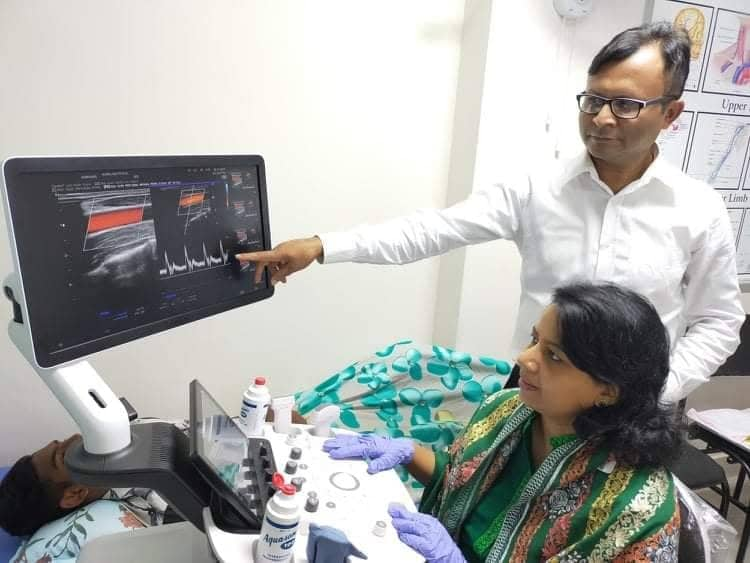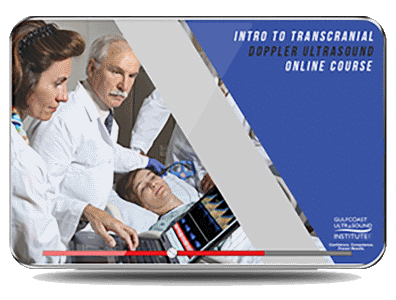
We will review the technical details, including methods of image acquisition and interpretation.

The proposed scope for point-of-care transcranial Doppler for the intensivist will be put forth and illustrated using four representative cases: presence of midline shift, vasospasm, raised intra-cranial pressure, and progression of cerebral circulatory arrest. The feasibility and value of this technique in the intensive care unit to help rule-in specific intra-cranial pathologies will form the focus of this article. With the increasing availability of point-of-care ultrasound devices, coupled with the need for rapid diagnosis of deteriorating neurologic patients, intensivists may be trained to perform point-of-care transcranial Doppler at the bedside. Transcranial color-coded sonography and two-dimensional transcranial Doppler imaging of the brain have the potential to be a middle ground to bridge this gap for certain diagnoses.
#Transcranial doppler training courses plus#
Clear communication, both verbal and written, is a plus for those who are part of a health care team.In the unconscious patient, there is a diagnostic void between the neurologic physical exam, and more invasive, costly and potentially harmful investigations. As a result, sonographers must be able to skillfully deflect questions better left to the radiologist or the attending physician. This professionalism is also necessary because, in some instances, tragedy such as cancer, untreatable disease, or fetal death is revealed during imaging procedures.
#Transcranial doppler training courses professional#
Sonographers need to cultivate a professional demeanor, while still expressing empathy, patience, and understanding in order to reassure patients. They must be able to follow physician instructions, while maintaining a creative approach to imaging as they complete each procedure. Sonographers need to enjoy helping others and working with a variety of professionals as part of a team. Those wishing to pursue a career as a diagnostic medical sonographer should be technically adept, detail oriented, and precision minded. The Society for Vascular Ultrasound, American Society of Echocardiography, and other organizations also provide CE opportunities.Įxperience is gained via internships while in a training program to earn an associate's or bachelor's degree in this field. Recent course offerings included Advanced Optimization of Your Echo Images and Doppler Evaluations, Transcranial Doppler Evaluation, and the Sonography of Inflammatory Conditions. For example, the Society of Diagnostic Medical Sonography offers webinars and in-person classes.

Professional associations also provide CE opportunities. This continuing education, offered by hospitals and ultrasound equipment companies, is usually offered after regular work hours have ended. They are required to maintain certification through continuing education (CE) classes, which vary from state to state. Students should also be aware of continuing education requirements that exist to keep sonographers at the forefront of current technology and diagnostic theory. Areas of study include patient care and medical ethics, general and cross-sectional anatomy, physiology and pathophysiology, applications and limitations of ultrasound, and image evaluation.

Most sonographers enter the field after completing an associate's degree.Įducation consists of classroom and laboratory instruction, as well as hands-on experience in the form of internships in a hospital ultrasound department. Instruction in diagnostic medical sonography is offered by hospitals, colleges, universities, technical schools, and the armed forces in the form of hospital certificates and two-year associate's and four-year bachelor's degree programs. Finally, take computer courses to familiarize yourself with using technology. In this career you will work with both patients and other medical professionals, and it will be important for you to be able to follow directions as well as explain procedures. Also, take English and speech classes to improve your communication skills. If you are interested in a career in sonography, you should take high-school courses in mathematics, biology, physics, anatomy and physiology, and, especially, chemistry.


 0 kommentar(er)
0 kommentar(er)
